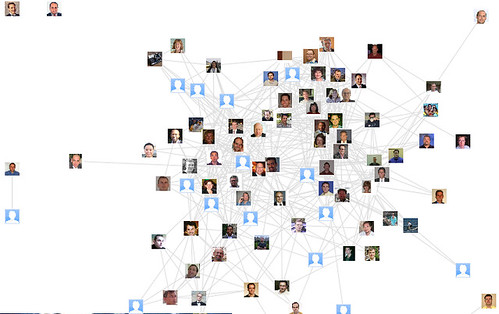Lately, I've been thinking about how much work it takes to run a community. Yes, every so often I like to question myself (for those of you who remember when I questioned feed readers). While I didn't get a big reaction for it on my external blog, it certainly caused some buzz in my internal blog.
Running a community takes a lot of work and time
Anyway, as you may know, for two years now, I lead the internal Lotus Social Software community of practice. As the leader I have several responsibilities:
- Host a 1 hr weekly call for Q&A across all members ( 4 hrs / month )
- Welcome new members and introduce them to our tools ( 1 hr / month )
- Create a monthly newsletter with new intellectual capital, happenings, etc ( 3 hrs / month )
- Track unanswered forum threads -- alert SMEs as necessary ( 1-3 hrs / month )
 Of course, these are all self-inflicted responsibilities and nothing dictates that I have to do them. Adding up, in average, I spend ~10-12 hours a month running this community. That seems to me like a lot of time, especially when it seems like the "big buzz" with Enterprise 2.0 and social software is around communities.
Of course, these are all self-inflicted responsibilities and nothing dictates that I have to do them. Adding up, in average, I spend ~10-12 hours a month running this community. That seems to me like a lot of time, especially when it seems like the "big buzz" with Enterprise 2.0 and social software is around communities.
Why do I do all of this? Well, based on my experience, communities tend to die if they are not continuously nurtured.
According to Atlas, the network is pretty tight (and you can see me there in the middle!). I'm very proud of that and take some credit for it  .
.
Best Practices for Communities of Practice
Etienne Wenger published in 1998 Communities of Practice - Learning as a Social System in Systems Thinker. Isn't it impressive that something written 11 years ago still applies today!??! Anyway, Wenger is widely recognized as the originator of the term community of practice.
In both of those papers, communities are labeled as self-sufficient / self-organizing. Yet, Wenger emphasizes that communities do benefit from some leadership. He even ends with this quote, which I liked very much:
No community can fully design the learning of another; but conversely no community can fully design its own learning.
Going Forward
I originally started writing this blog entry to help me think "out loud" as to what I should in terms of leading the community. The community, I believe, has been sufficiently "seeded and nurtured". So, is it time to stop "watering the garden" ? Is it time to now let go of the community and let it continue to develop itself ?
I definitely want to continue growing this community and promote the use of social software inside IBM. Therefore, I plan on delegating more responsibilities going forward to distribute the work load across the community core team. But still... running and leading a community takes a lot of work...Are communities really all that ? What do you think?